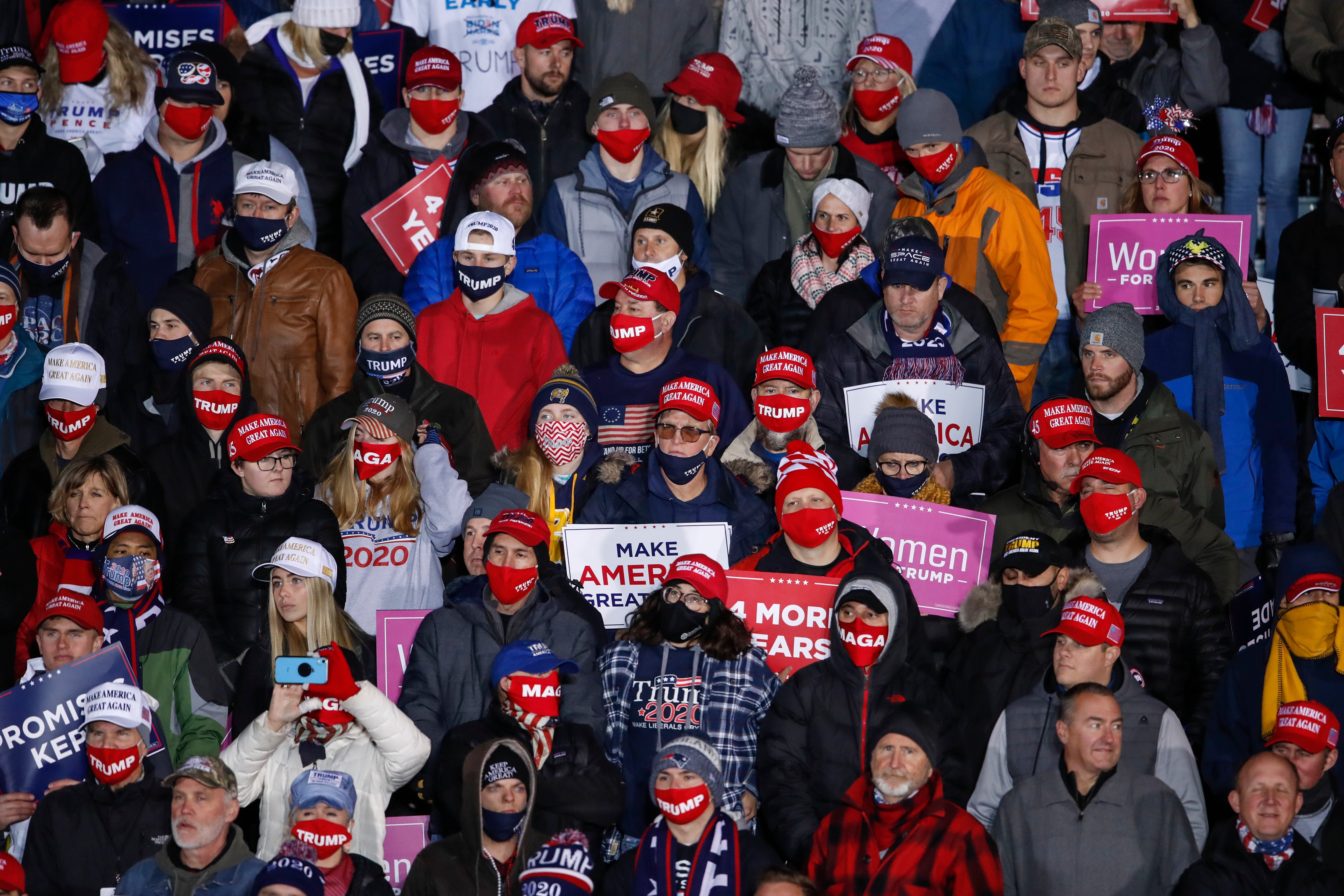Extreme polarisation will be America’s undoing – whatever the results of the election
Whoever you blame for this trend, demonising rhetoric is in danger of poisoning society. I have seen that play out in the Middle East in severe ways, writes Bel Trew


This week a controversial tweet kept reappearing up in my timeline.
It contained two images side by side: a photo of a flag-bedecked motorcade of Trump supporters rolling through the Texas countryside next to a photo of Isis jihadi, waving Kalashnikovs on top of pick-up trucks, driving away from Raqqa.
“See the difference? Me neither,” quipped the author of the tweet, a columnist in Boston.
Below was a torrent of polarised vitriol and rage. Some vehemently agreed with the author, others presented the political opposite in just as stark terms: one pro-Trump tweeter compared a photo of a Black Lives Matter protest with a rally of the Nazi party.
As a reporter who has extensively covered the brutality of Isis and the rise of violent fascist groups, these kinds of extreme comparisons are not accurate or helpful.
But more than that, they are deeply concerning, as they highlight a deep and dangerous polarisation which I have seen tear countries apart in the region I cover.
Research by multiple organisations have shown that polarisation is deepening in America.
Although a decades-long trend, the acceleration is often attributed to the divisive presidency of Donald Trump, who has clearly fanned the flames. But according to Gallup, the difference between Republicans’ and Democrats’ job approval ratings of Mr Trump is the largest it has ever measured for a president.
Whoever you blame for this trend, polarising rhetoric is increasingly slipping into everyday speech and it is now in danger of poisoning society. Today, each side fears the other will destroy the nation if they rise to power: crushing your opponent is not only the ultimate goal but a matter of survival.
I have seen that play out in the Middle East in an extreme way: it is how societies fall apart. Without wishing to sound dramatic, I have seen it rip asunder families, bolster prison walls and build frontlines.
Whatever happens on election day, I hope that the victor stands on his podium and preaches unity, humility and healing in every meaning of the word. I hope he pledges to serve and support those who did not vote from him. I hope it marks the beginning of an end of poisonous polarisation. For everyone’s sake.
Yours,
Bel Trew
Middle East correspondent
Join our commenting forum
Join thought-provoking conversations, follow other Independent readers and see their replies
Comments